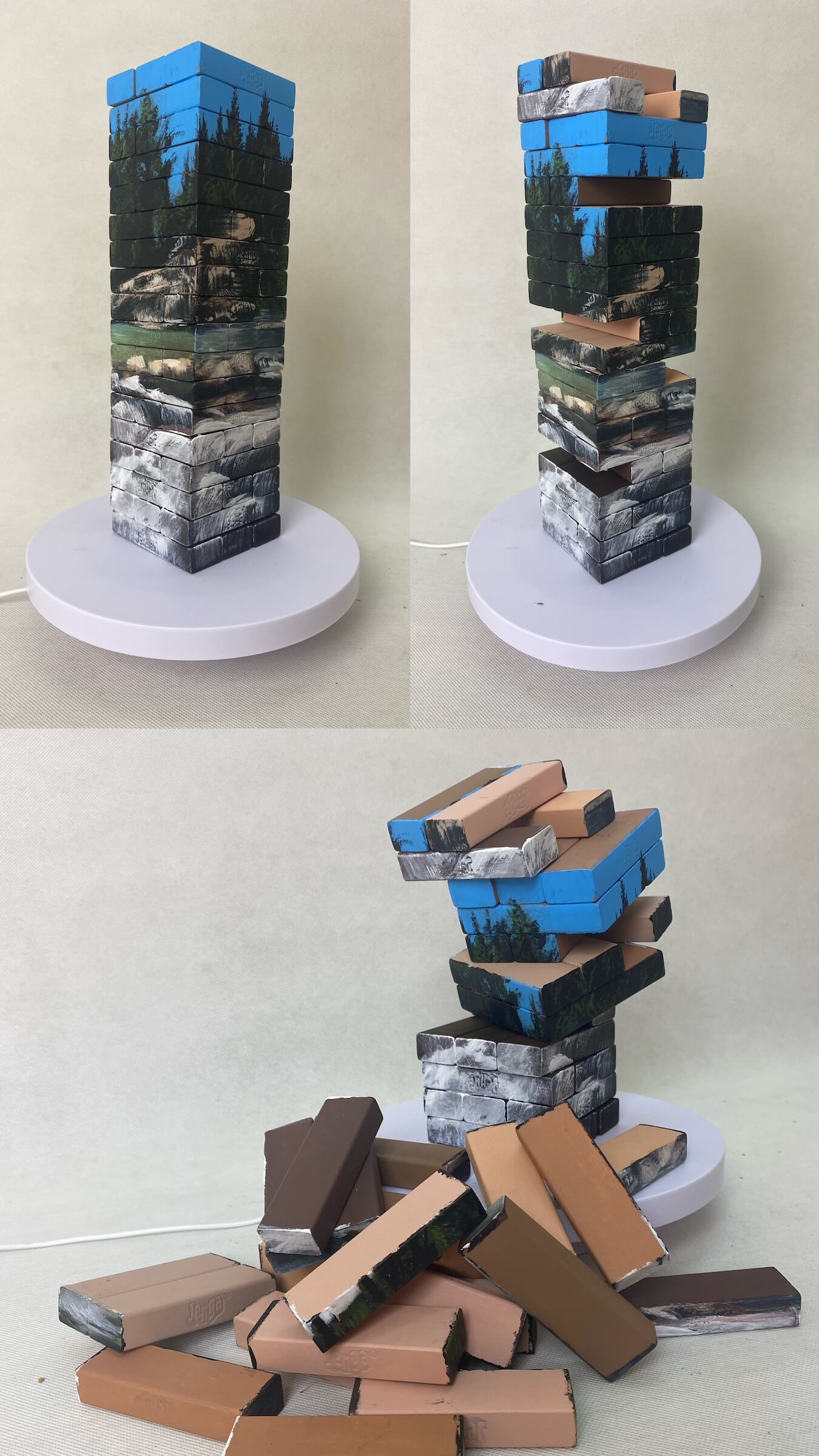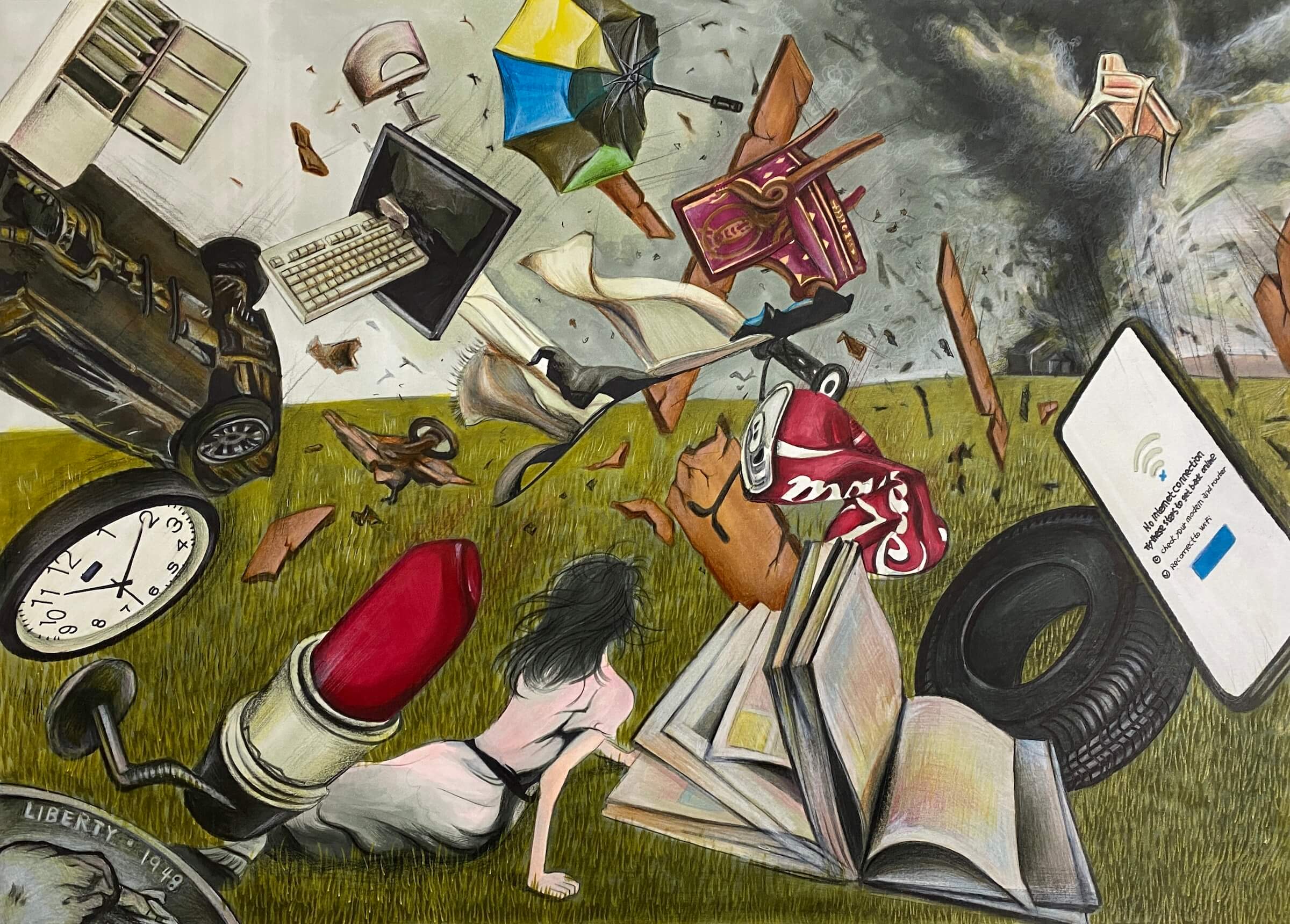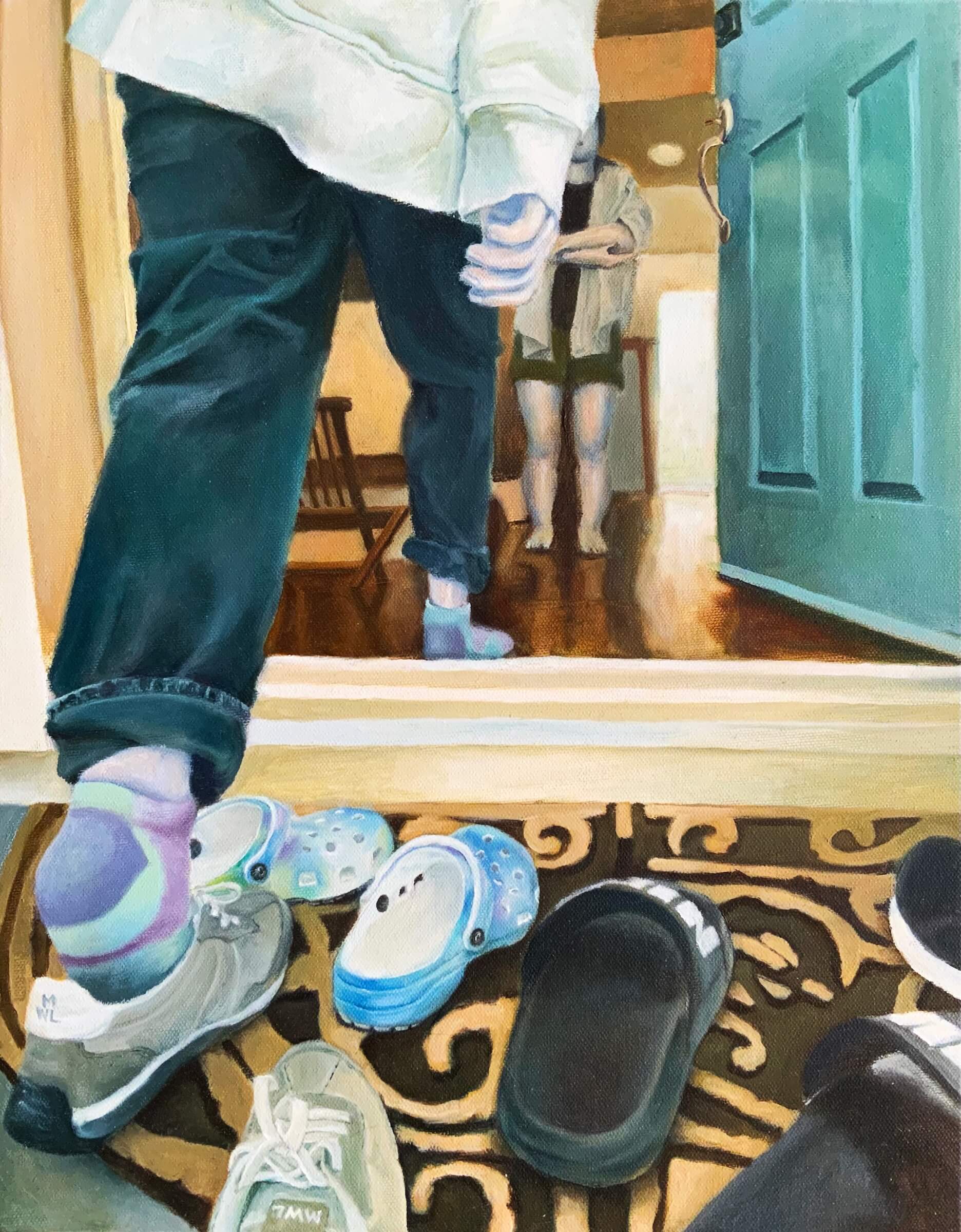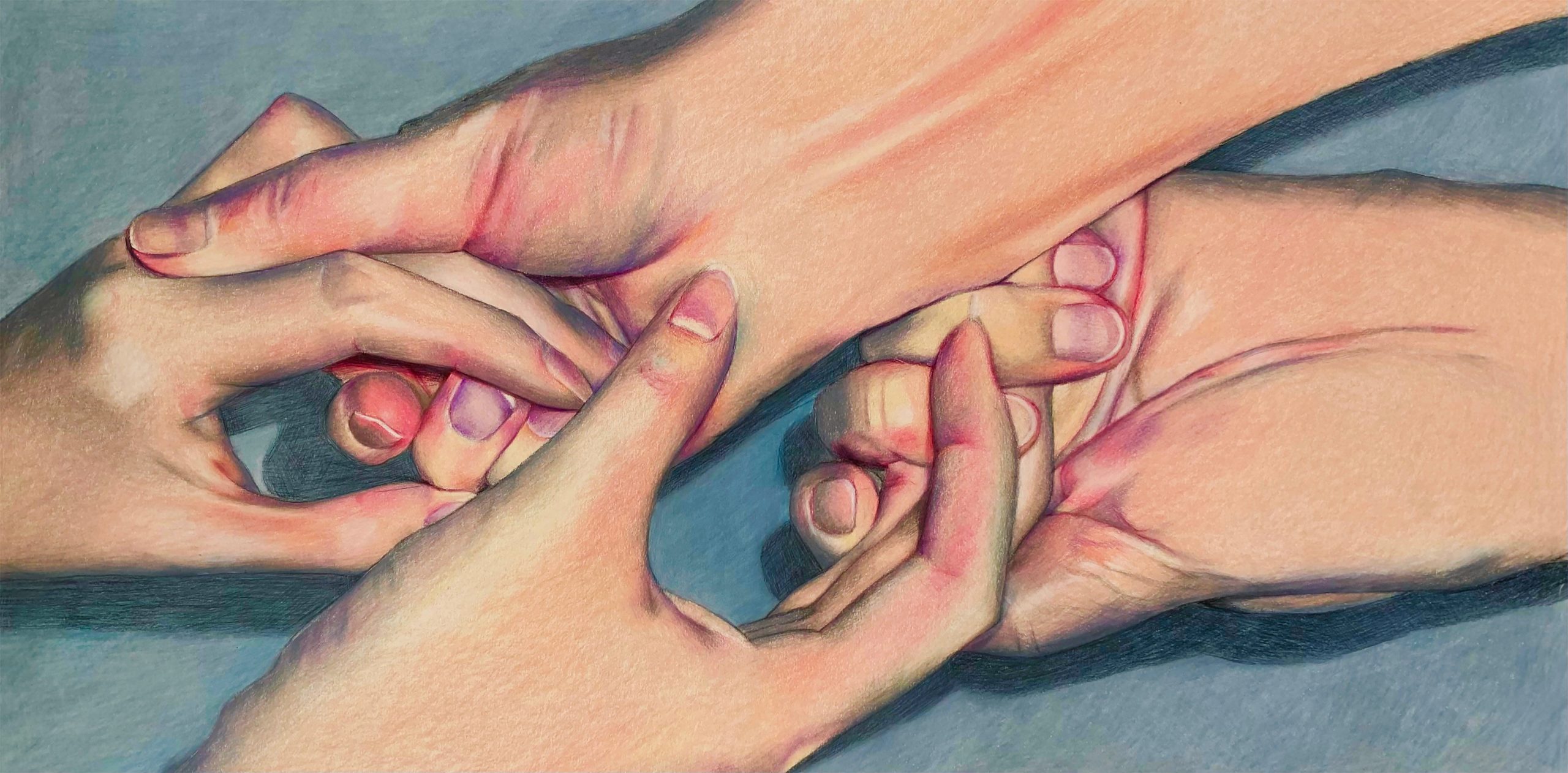Anfeng Xie, a junior at St. Paul’s School, was born in Shanghai, China, where he developed a love for nature. He spent his childhood sketching trees and flowers in city parks and exploring the landscapes of Jiangsu, Lake Tai, and Zhejiang. Witnessing environmental degradation during his travels inspired his art—depicting smokestacks under gray skies and fragile ecosystems. After moving to New Hampshire for middle school, he explored new artistic styles and deepened his understanding of environmental issues. Through his work, Anfeng aims to clarify the complexities of environmental advocacy and inspire deeper reflection.



